The Most Exciting PC Games of 2019
January 11, 2019 | 16:00
Companies: #4a-games #avalanche-studios #bioware #capcom #from-software #id-software #julian-gollop #remedy #techland #the-creative-assembly #white-paper-games
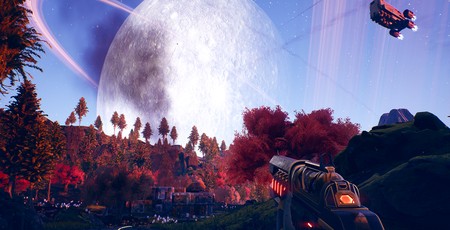
It’s 2019! The year of Blade Runner, The Running Man, and other running-related dystopias. Here at bit-tech, though, we don’t like to talk about running, unless it refers to running the latest games.
With this in mind, we’ve compiled a rundown of the most exciting games that are set to launch in the next twelve months. This is a PC only list, so if it’s not coming out on the old Big Rectangle, you definitely won’t see it on this list. We’ve also focussed on games that are either confirmed or most likely to launch this year. So no, Cyberpunk isn’t on here, because if that launches in 2019 I will swallow a drone whole.
On with the list!

Resident Evil 2 Remake
It may seem odd that one of the most exciting games of this year is a remake of a game that’s over two decades old, but the reason Resident Evil 2 is so exciting is because it is truly a re-make. Not content with up-resing or even overhauling the original, Capcom has rebuilt Resi 2 from the ground up in its incredible RE Engine.
Unsurprisingly it looks fantastic, but what’s more intriguing is how Capcom has adjusted how Resi 2 will play, switching the player perspective to over the shoulder and essentially transforming the game into a modern third-person survival horror. In essence, it’s putting Resi 2 more directly in line as a prequel to the sublime Resi 4, which I think is a very clever idea.
If Capcom can pull this off while retaining the tension and atmosphere that made the original version so great, this could easily be one of 2019’s best games.
Expect to see: Procedural dismemberment, big tongues.
Release: January 25th
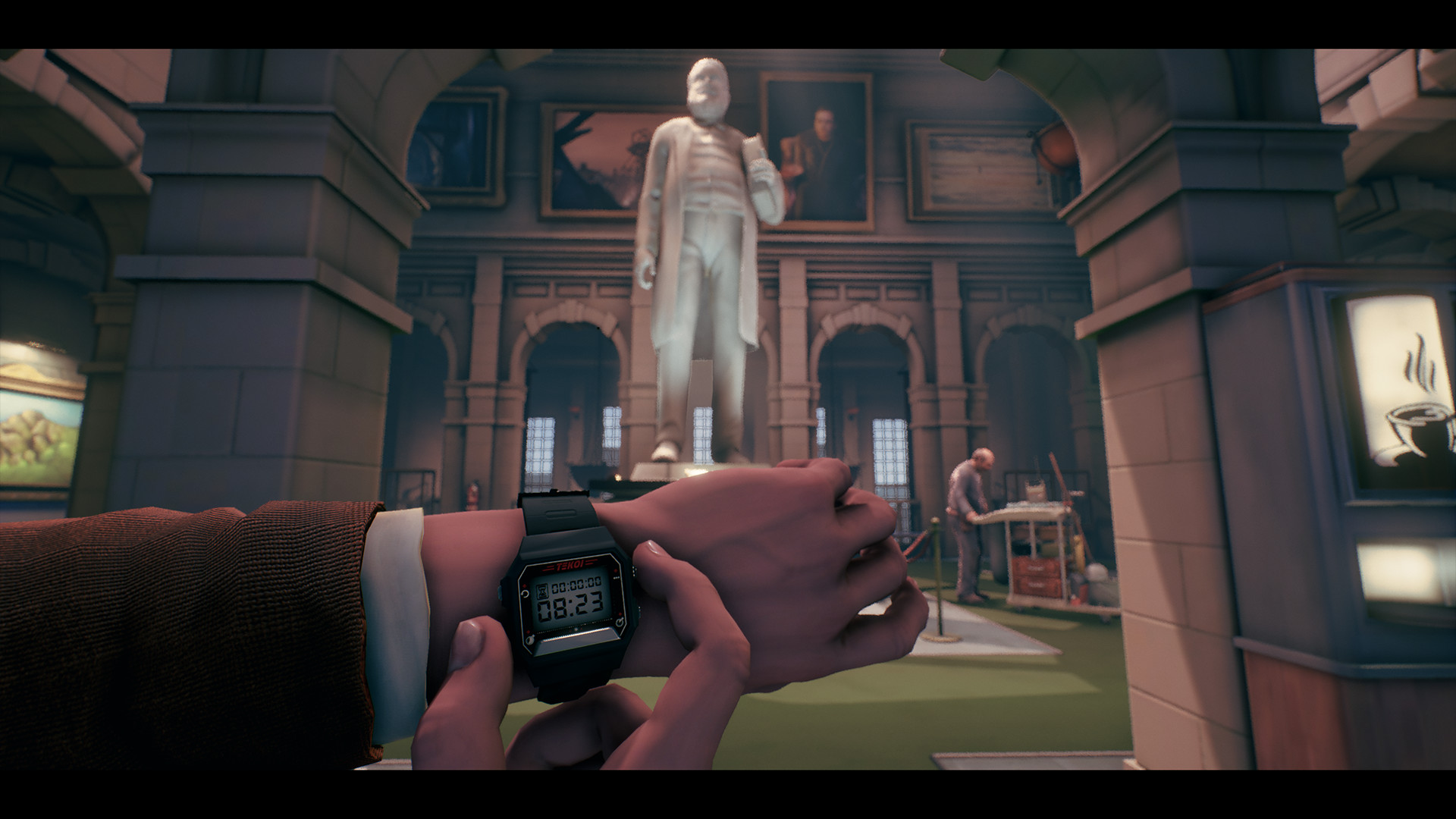
The Occupation
Formerly the creators of Ether One, White Paper Games’ latest project is fascinating. Set in an alternate 1980s timeline, it sees you play a journalist investigating a bombing at a government office, which has become the central issue in a new, draconian anti-immigration policy.
Aside from its bizarre topicality, what’s fascinating about The Occupation is that the game plays across a strict four and a half hour timeline. In the game’s world, events will occur whether you’re present for them or not, so it’s up to you to decide how best to approach your investigation, collecting as much evidence as you can through conversations, exploration, and a bit of illicit sneaking before that time limit runs out.
It looks to be a really interesting evolution of first-person narrative adventures, giving its exploration and storytelling a much more dynamic foundation. We’ll find out how well it works next month.
Expect to see: Interactive briefcases, government conspiracies, corduroy.
Release: February 4th
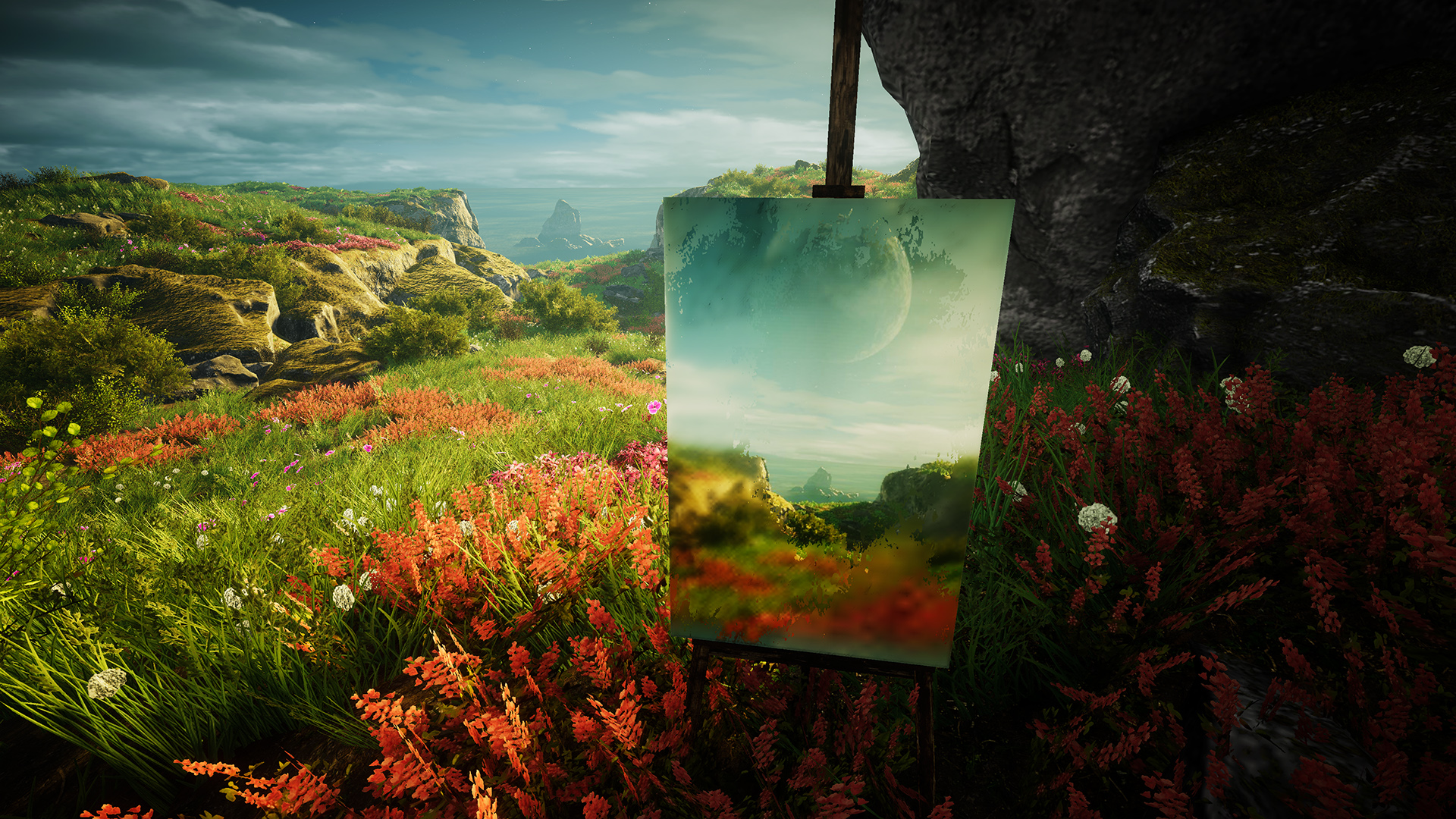
Eastshade
I hadn’t heard of Eastshade until the day I was writing this list. It’s an open-world game in which you play a travelling artist painting pictures of the landscape. It sounds like the most twee thing ever, and I was on the verge of dismissing at such. Then I watched the trailer, and I knew I had to add it here.
Basically, the game looks like a blend of Elder Scrolls and Pokemon Snap. You’re able to wander the world freely, painting images of the landscape and selling them to Eastshade’s NPCs. But you can also embark on quests to paint specific images, the rewards for which will give you better equipment that lets you access and paint new areas of the world.
It all sounds much more deep and involved than I’d initially imagined, and the presentation is wonderful. Not only does Eastshade look beautiful as you’d expect, but the writing and voice acting also appears to be excellent. I think Eastshade is going to be one of 2019’s most pleasant surprises.
Expect to see: Gorgeous landscapes, hot air balloons, a bit of peace and quiet.
Release: February 13th
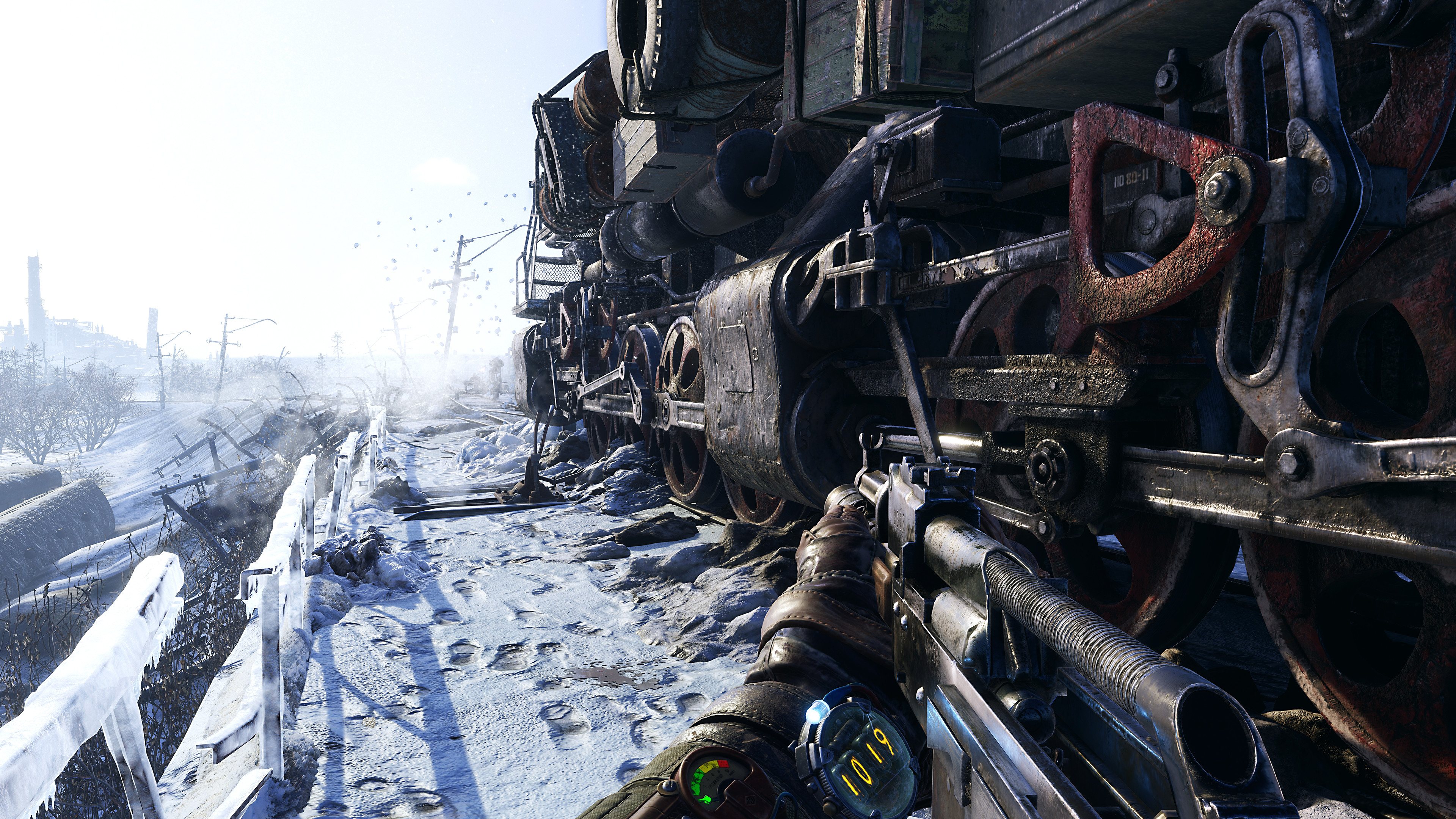
Metro: Exodus
The Metro series has hitherto been about sneaking and shooting through cramped underground tunnels, blasting monsters and subterranean bandits with rickety guns. With Exodus, however, 4A’s wonderfully atmospheric shooter series is heading out into the open.
4A’s plan is to combine Metro’s narrative-heavy shooting with larger, open levels that let players explore the series’ post-apocalyptic world more freely, while also giving the survival systems greater room to breathe. Add Metro’s tried and tested gunplay and a more flexible, choice-ridden narrative, and you’ve got another early contender for 2019’s best game.
Expect to see: Heavy breathing, big trains, snow.
Release: February 15th
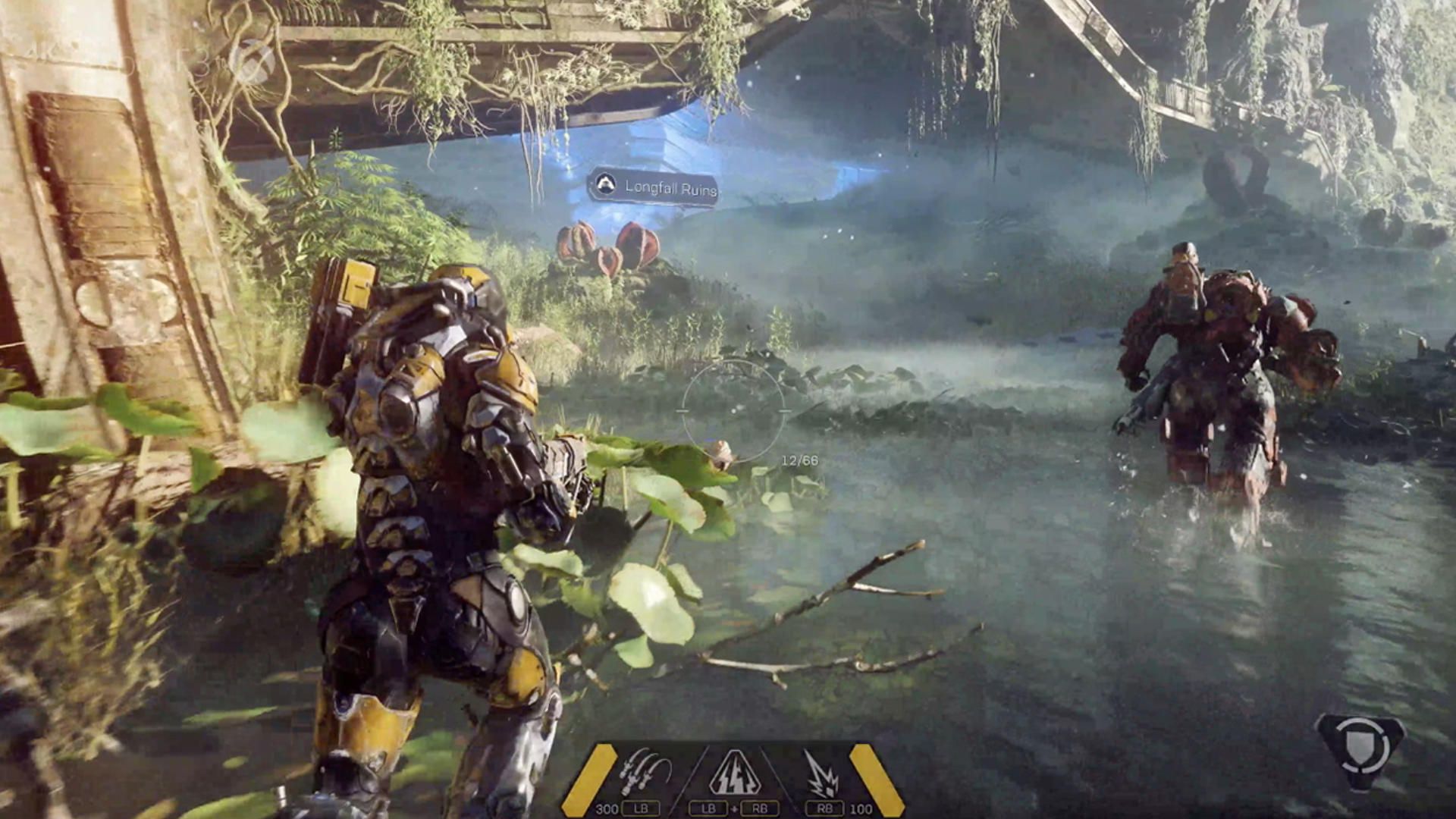
Anthem
There’s been a lot of debate over BioWare’s Anthem, which is a big departure from the studio’s usual RPG fare. It’s a shared-world shooter in the vein of Destiny, with up to four players scooting around a big open world in shiny armour, exploring and fighting in a richly detailed alien environment.
There’s little question that Anthem’s world and combat look great. But there is more of a question over how distinctive the game itself is going to be. 'Dudes in power-armour' is a stylistic barrel that gaming has scraped the bottom of pretty thoroughly, and from the outside Anthem just doesn’t seem to have the same personality as games like Mass Effect and Dragon Age.
That said, you should never write-off BioWare. If the studio can deliver a shared-world game that balances its action with a strong narrative thrust, it could be really engaging. Either way we’ll find out next month.
Expect to see: Jetpack boots, ground-pounds, no sex.
Release: February 22nd

Total War: Three Kingdoms
The first major historical Total War game since Rome II, Total War: Three Kingdoms sees the venerable strategy series heading to Ancient China. Set in the 3rd Century AD, Three Kingdoms will let players control one of 11 factions as they attempt to unite China through the series’ familiar blend of diplomacy, economic management, and stonking great battles.
Three Kingdoms aims to place a greater emphasis on individual characters than previous Total Wars. Generals play a much larger role both on and off the battlefield. Not only do they get access to special equipment and powers while fighting, they also exist in a social web with other generals and characters in the game, based upon a code of honour. Duty and fulfilling obligations will play a central role, while breaking of trust and betray may result in generals engaging in a one-on-one duel. These new systems come as part of the game’s 'Romance' mode, which puts a slightly more legendary twist on the history that Three Kingdoms represents.
Expect to see: Big battles, heroes and villains, AI that hopefully works this time.
Release: March 7th
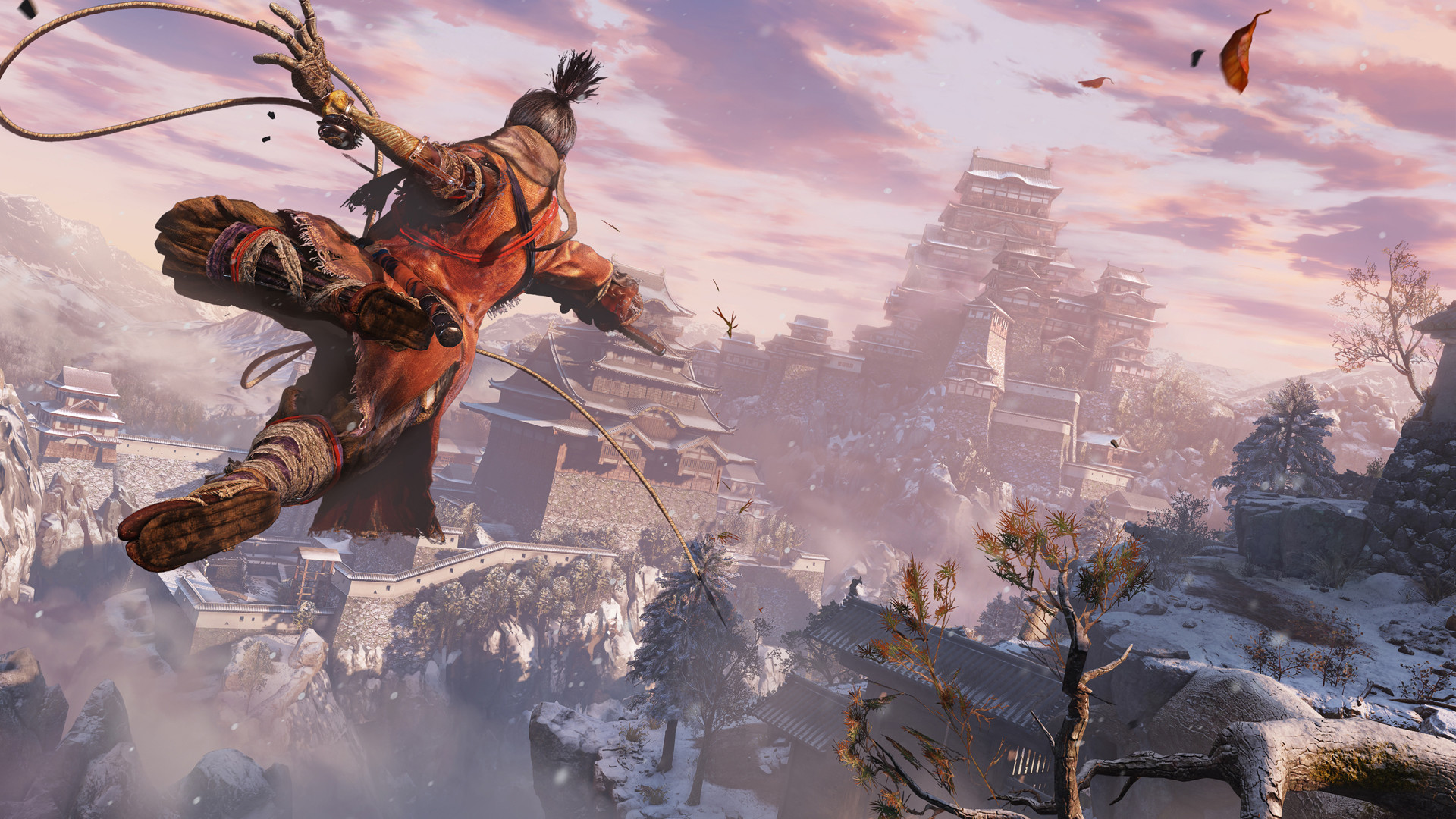
Sekiro: Shadows Die Twice
The creators of Dark Souls and Bloodborne return with another fearsome combat challenge. Set in feudal Japan, Sekiro: Shadows Die Twice sees players assume the role of a samurai searching for his kidnapped lord after being betrayed and left for dead.
Although Sekiro is visibly from the same stable as From’s previous hits, beneath the surface are some important changes to the formula. To begin with, Sekiro is not an RPG. You play as one character wielding one weapon and one roster of abilities, while character stats will play a much smaller role than in From’s other games. With Sekiro, From wants to place the emphasis on player skill, encouraging you to master your weapon and abilities to defeat the game’s typically ferocious opponents.
Sekiro isn’t all about stripping things back, however. Having lost his left arm at the game’s outset, Sekiro replaces this with a prosthetic that can be equipped with all manner of gadgets, from a grappling hook to a shield-smashing axe-blade. Moreover, Sekiro will see From introduce proper stealth mechanics into the game, letting you sneak up on enemies properly to execute devastating stealth attacks. Alongside skill, flow is another crucial element of Sekiro. From wants the action to move much more quickly.
Expect to see: Fierce combat, fiercer demons, You Died.
Release: March 23rd

Rage 2
Nobody in the world was asking for a sequel to Rage. I certainly wasn’t interested in one… until I saw it. Co-developed by Id and Avalanche Studios, Rage 2’s motto appears to be, 'Let’s get it right this time.'
The premise is basically the same as last time, a blend of blistering FPS action and Mad Max-inspired vehicular carnage. But this time the action is set in a proper open world, with much more seamless transitions between the driving and the shooting. Rage 2 also seems be playing the concept with a much lighter tone, featuring colourful gangs of raiders, and lots of OTT player abilities.
My main concern is that once again Rage might be a little late to the party. Giant, post-apocalyptic open world is not exactly a new idea. However, I’m excited to see what exactly Id and Avalanche can produce by putting their heads together. At the very least it should be a perfectly enjoyable FPS, and potentially much more.
Expect to see: Spiky cars, gibs, Andrew W.K.
Release: May
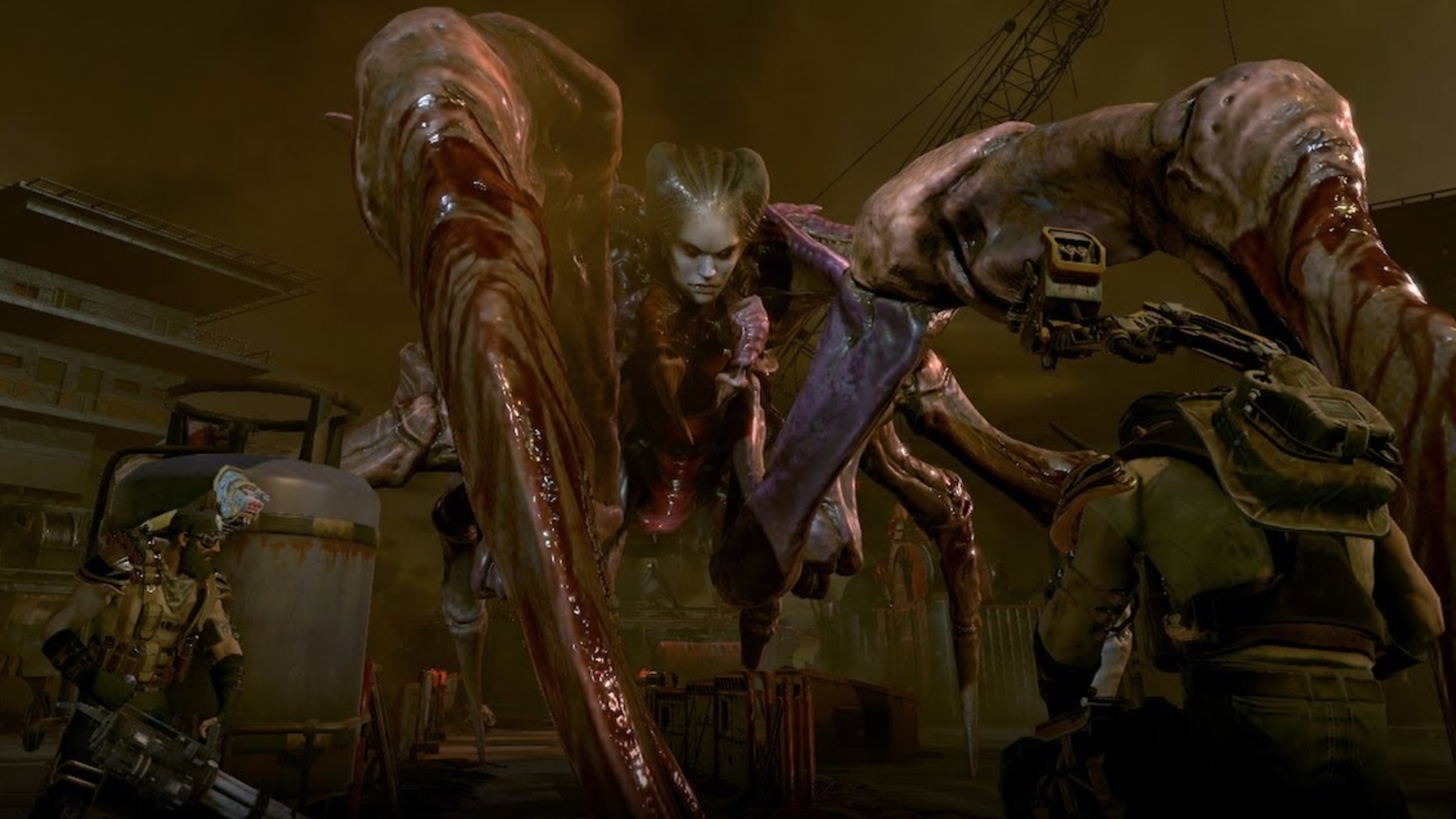
Phoenix Point
Phoenix Point is the new strategy game from UFO: Enemy Unknown designer Julian Gollop. It sees players controlling a team of special forces operatives as they attempt to save the world from alien invaders. In this case, the aliens come in the form of a virus named Pandora. Unwittingly unleashed by humanity as the permafrost melts, Pandora infects and mutates the human population, transforming them into hostile, monstrous drones. Much like in XCOM, you’ll need to build your base, train your soldiers, and respond to alien activity in nail-biting, turn based battles.
Yet the aliens aren’t the only potential threat you’ll have to deal with. Phoenix Point aims to be a much more unpredictable game than XCOM, featuring several other human factions, all with their own agendas. So you may find yourself in a fragile alliance with the ultra-zealous Disciples of Anu, or engaged in a two-front war between the aliens and the militaristic new Jericho. The idea is to create a strategic puzzle that’s different every time you play, a shifting ecosystem of threats, opportunities, and challenges.
Expect to see: Terrifying monsters, obliterated squaddies, defeat.
Release: June
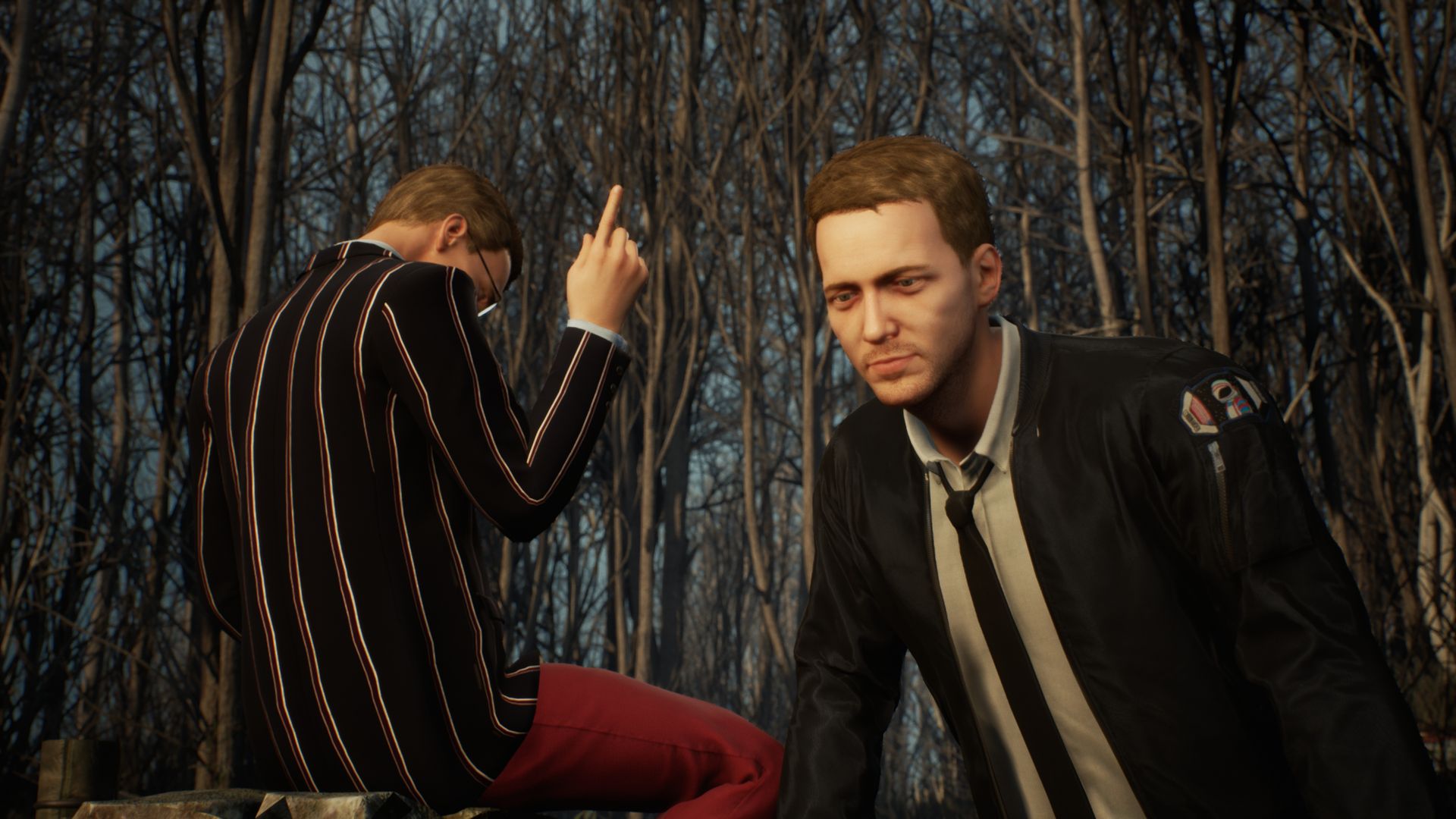
Twin Mirror
From Life Is Strange creators DontNod Entertainment, Twin Mirror is a supernatural detective game that, as the title suggests, takes a fair amount of inspiration from Twin Peaks. Players assume the role of investigative journalist Sam (again? Maybe soon it will be the year of the tech journalist in gaming... - ed.), who, upon returning to his home town to attend an old friend’s funeral, discovers strange goings on within the community.
With Twin Mirror, DontNod is aiming for greater mechanical depth than seen in Life Is Strange. Rather than simply following the story, players will have to solve puzzles by tracking down clues and putting the evidence together in Sam’s mind-palace.
While I believe anyone who seriously uses the phrase mind-palace should be approached with caution, here I really like the idea of representing the detection process as a physical space. If DontNod can get the balance right between narrative and puzzling, it could be onto a winner.
Expect to see: Doppelgangers, amnesia, that small-town vibe.
Release: TBC
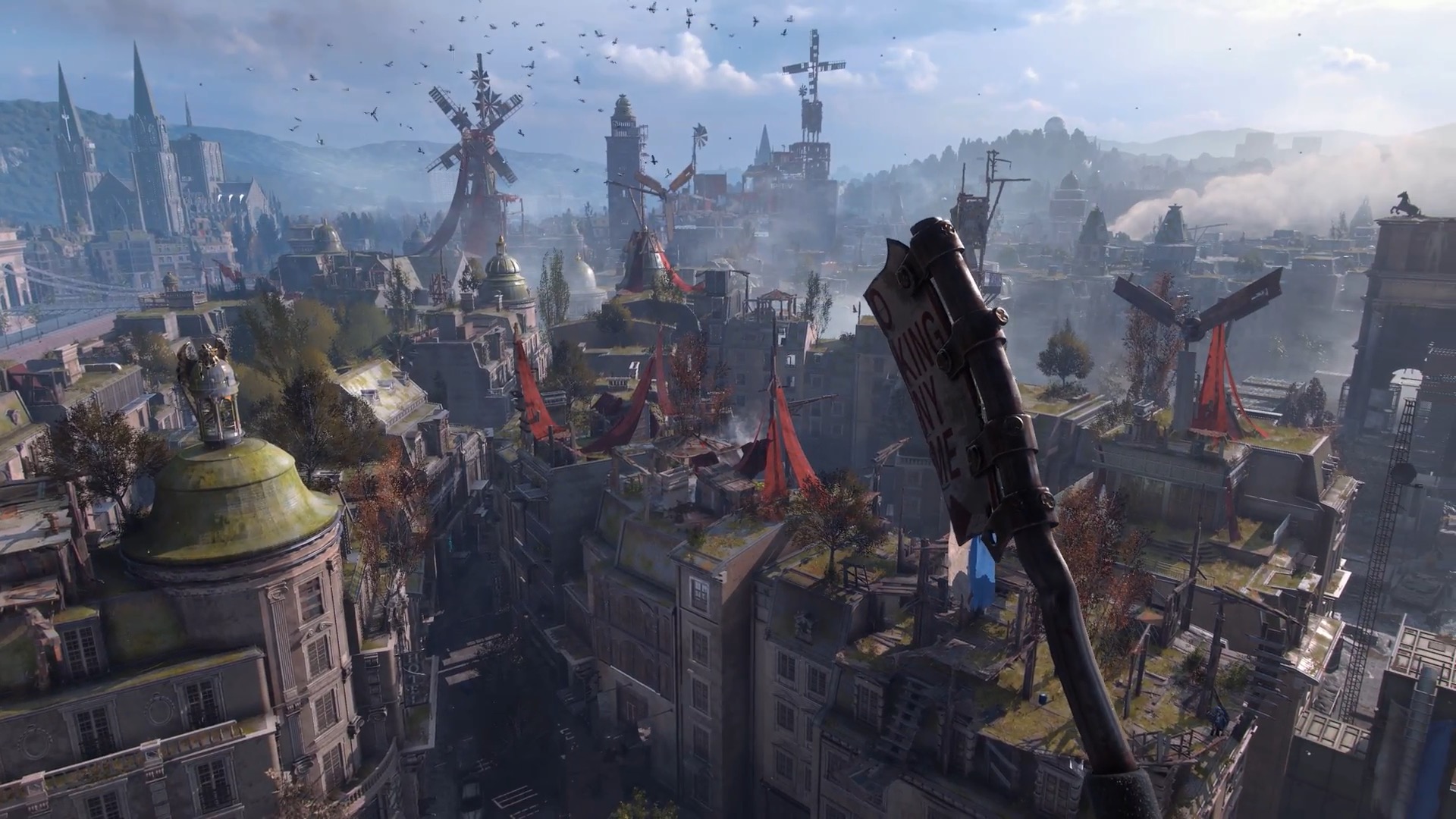
Dying Light 2
Zombie games are by this point crustier than your average shambling undead, yet it isn’t the zombies which make Dying Light 2 such an intriguing prospect. Like the original, Dying Light 2 will see players free-running and zombie smashing their way across a large, open-world city. But this city will change dramatically depending on the choices you make as you explore.
Moreover, these choices don’t exist in the form of standard dialogue trees. Instead, the city is divided into districts that can, in theory, be occupied by any of the game’s human factions (or zombies). While the city’s layout will be affected by certain story choices, other player actions can affect the city’s infrastructure too. Killing a bunch of zombies in one area, for example, might encourage a human faction to move into that area, leaving the previous area free for you to explore.
It's essentially a blend of first-person action, RPG storytelling, and zone-based strategy. It sounds very intriguing. The original Dying Light was much better than we anticipated, so if Dying Light 2 can do the same, then it will likely be very good indeed.
Expect to see: Cunning stunts, emergent play, things in the dark.
Release: TBC

Doom Eternal
2016’s Doom was the best thing since, well, the original Doom, a thrilling, hyper-violent, and above all fun combination of old and new shooter ideas.
Doom Eternal aims to continue the reboot’s fight, featuring new weapons, new enemies, and a several new mechanics. Alongside the gun in your hands, players will be able to attach weapons to their armour, such as a wrist-blade for quickly shanking demons, and a shoulder-mounted rocket launcher. The Doom Slayer is also more agile, able to run along walls and deploy a shotgun-mounted grappling hook for speedy traversal.
Id is also experimenting with a couple of more unusual ideas. First off, it's blending single and multiplayer by letting other players invade your game. Id is also adding extra lives into the game that work alongside the checkpoint saves, keeping you in the fight for a little longer if you fall just short of a checkpoint.
Mainly, though, it’s exciting simply because it’s more Doom. I don’t expect Doom to reinvent the wheel, I just expect it to let me kill something with it.
Expect to see: Hell on Earth, robot spiders, red.
Release: TBC.

Control
Remedy Entertainment hit a stumbling block with its last project Quantum Break, but Control looks like a return to form for the Finnish studio. Control takes place in a building known as the Oldest House, a giant New York skyscraper that is home to an organisation that investigates supernatural phenomena. You play as Jesse Faden, the newly inducted Director of said organisation whose first day on the job involves protecting it from invasion by an otherworldly force.
Like all of Remedy’s Previous games, Control is a third-person actioner, and all of that stuff looks perfectly fine. Where Control gets interesting, however, is how Remedy is using its Oldest House as a premise to create surreal, dreamlike level design that messes with the player’s sense of space and perspective. It all looks very weird, and very intriguing.
Expect to see: Weird shit, snappy gunfights, cubes.
Release: TBC
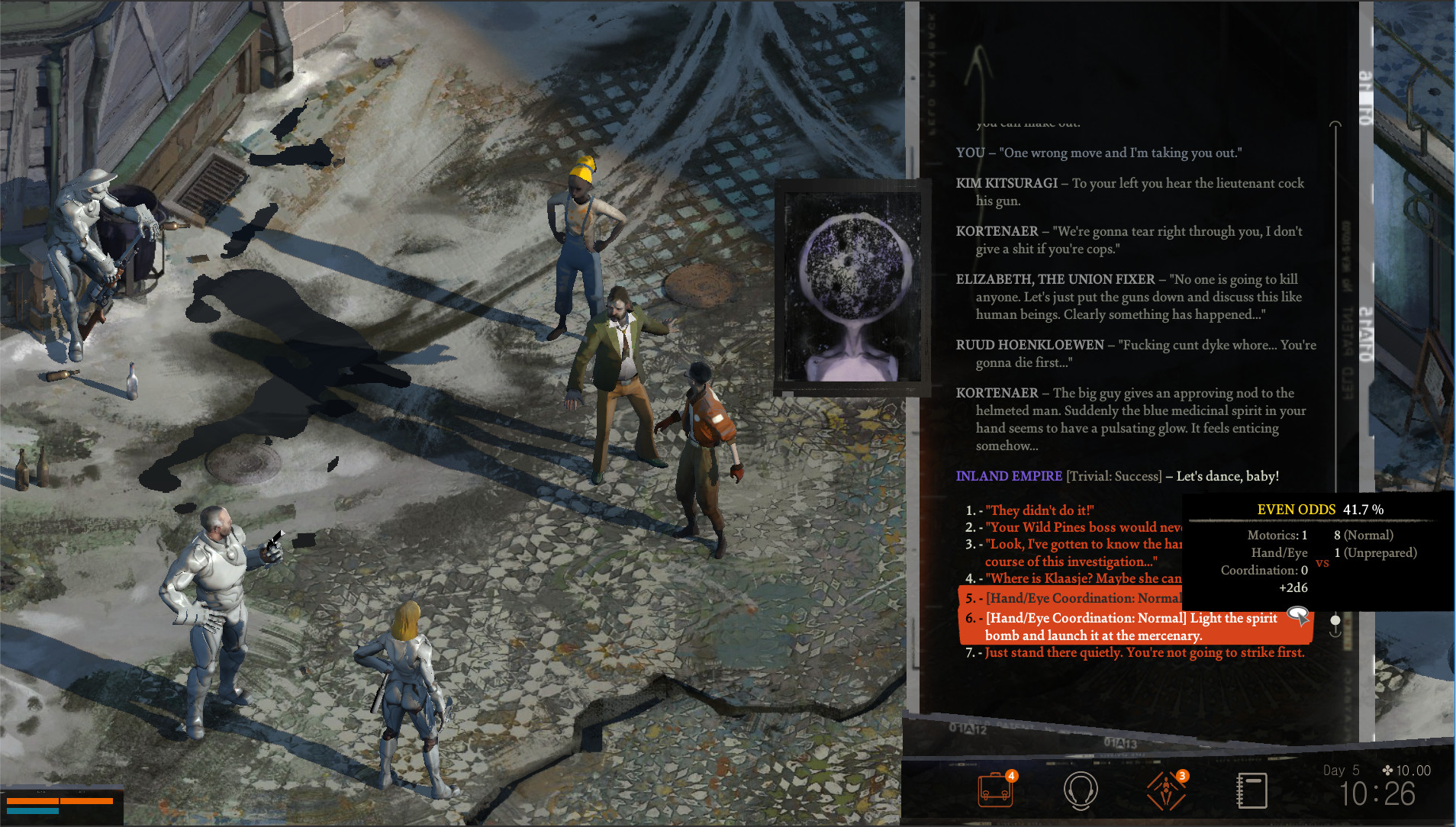
Disco Elysium
Disco Elysium is possibly the most ambitious isometric RPG I’ve ever seen. To very briefly summarise, it’s a detective game set in a unique urban fantasy setting in which your character’s emotions and mental states are basically characters of their own. Different facets of your mind can essentially converse with you, representing your character’s own train of thought. What’s more, the more you rely on one particular set of attributes, the more they come to define your character.
It’s very hard to describe Disco Elysium in a handful of words. So here are a few highlights. The game script is 600,000 words long. It features an inventory for your thoughts, letting you connect clues and evidence you collect on your travels. Your character is an amnesiac, and if you don’t look in a mirror, they will have no idea what they look like. There’s a hidden quest in which you have to find your shoes, and if you don’, you’ll gain a movement penalty.
Beyond its broad structure, Disco Elysium is quite unlike anything else I’ve seen. I can’t wait to play it.
Expect to see: The unexpected.
Release: TBC
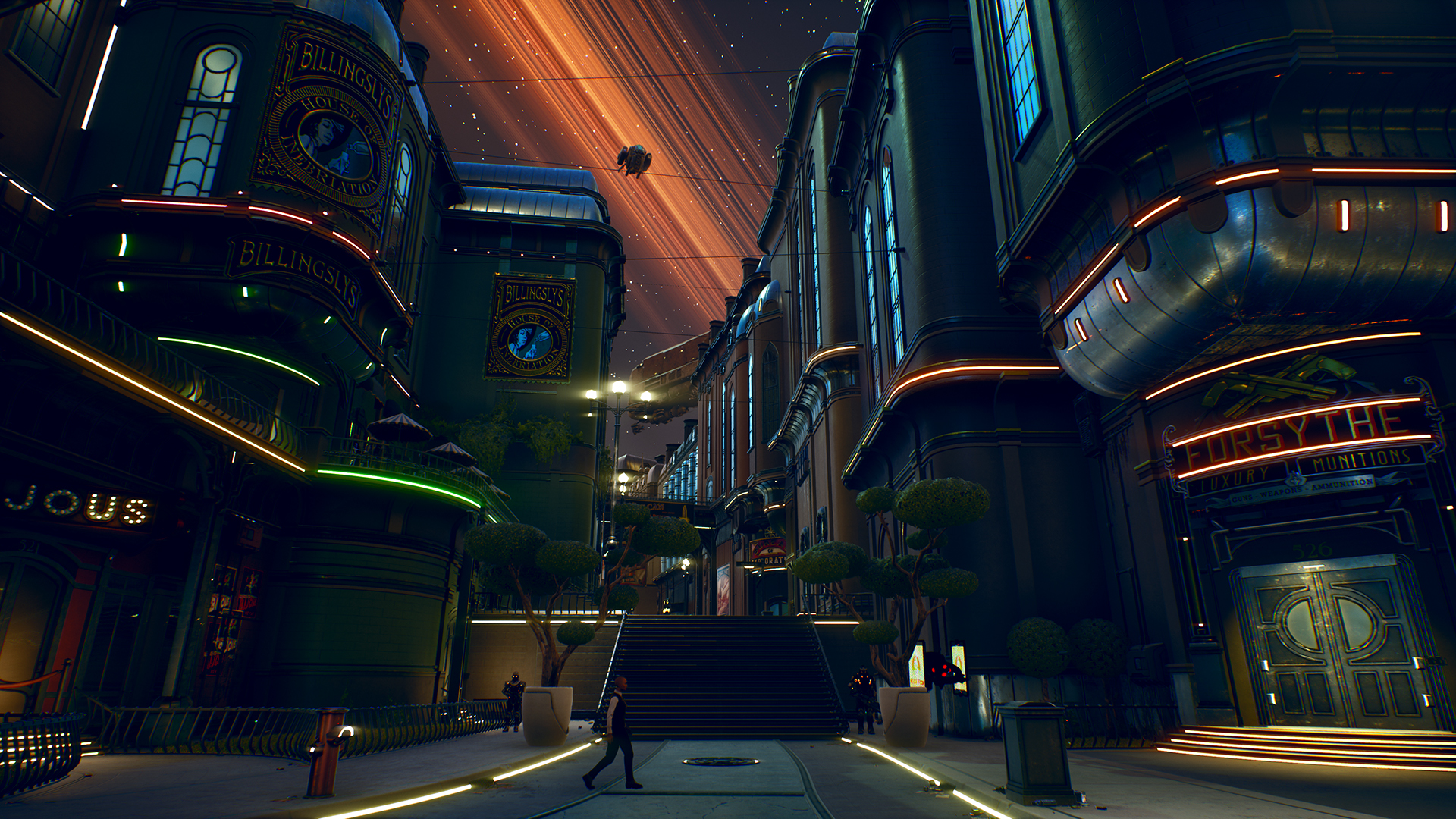
The Outer Worlds
Late last year, Microsoft purchased Obsidian Entertainment, a decision I found a little baffling. Obsidian is a fine studio, but talented as they are, their games have only ever tended to meet with moderate commercial success. What exactly was it that got Microsoft so interested?
Then I saw The Outer Worlds, and I understood.
To put it crudely, The Outer Worlds is basically Fallout 4 in space. Designed by the original creators of Fallout – Tim Cain and Leonard Boyarsky, it’s a first-person, open world(s) RPG that sees you play an intrepid explorer recently defrosted from a 70 year long cryosleep.
In play, the game looks very much like Bethesda’s take on Fallout, right down to the way the camera zooms in on NPCs during dialogue. But The Outer Worlds is also infused with its own quirky spirit. The world and story is layered with goofy humour. Examples include secret bases that are labelled 'Secret Base', and a 'Dumb' dialogue option that makes your character talk like a complete idiot, causing NPCs and companions to roll their eyes. As you can probably surmise, flexibility in progress is another key tenet of The Outer Worlds, with Obsidian keen to ensure players can complete quests in multiple ways.
In short, The Outer Worlds wants to use the structure of New Fallout, while embracing the spirit of old Fallout, in a game that officially has nothing to do with Fallout. Clear?
Expect to see: Rings, aliens, choices.
Release: TBC

MSI MPG Velox 100R Chassis Review
October 14 2021 | 15:04









Want to comment? Please log in.